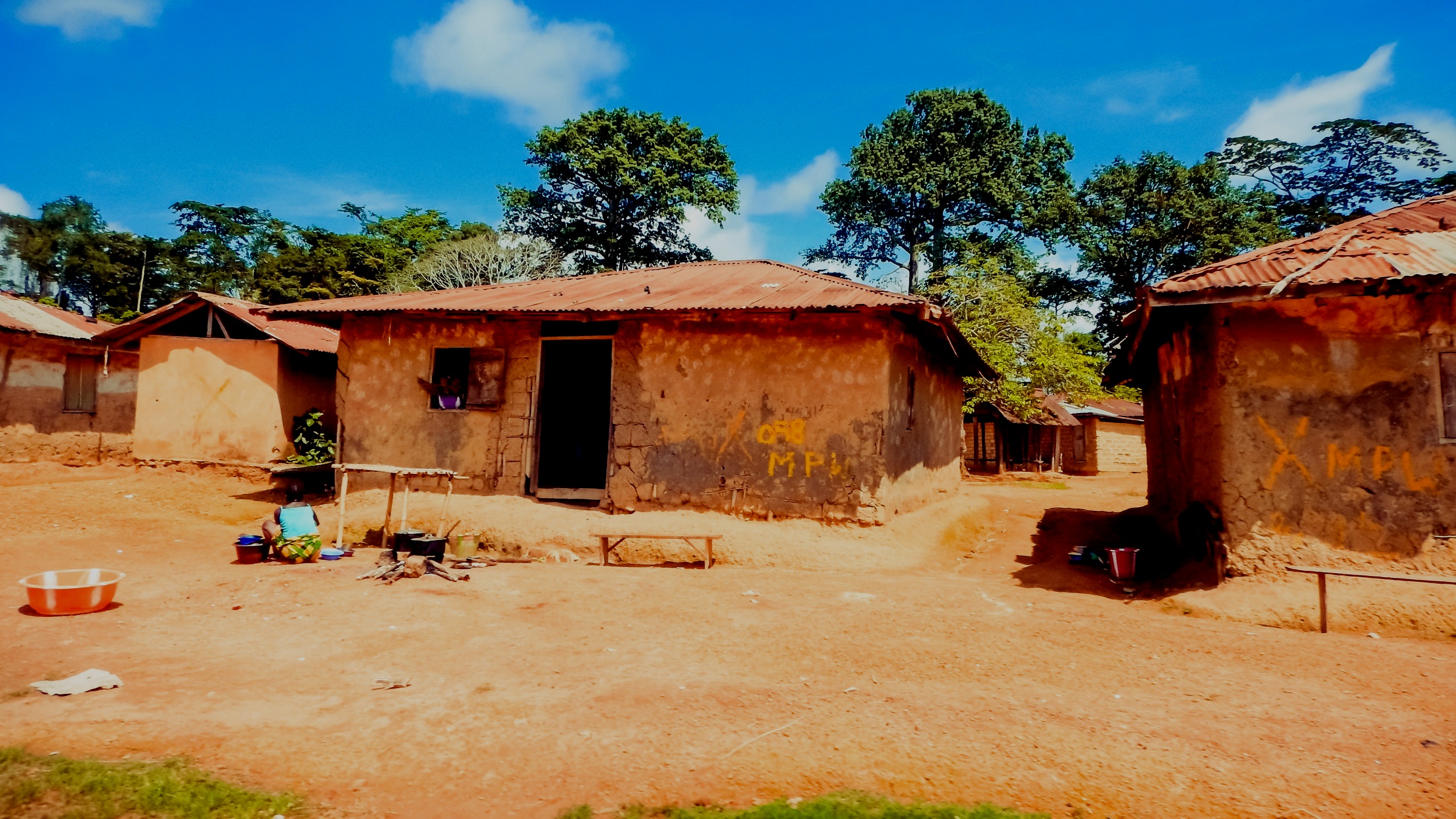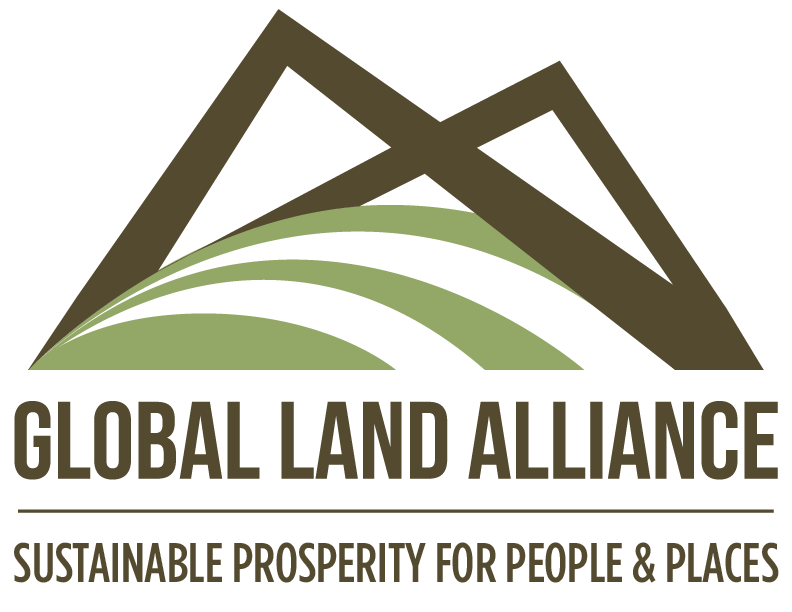
Analysis & Commentary
This section contains articles written by Global Land Alliance staff and partners, on a variety of topics relating to land tenure, rights, and governance; spanning countries around the world.
Beyond "Ticking the Box" of Public Consultation Poster
The Global Land Alliance’s Pubic Consultation Desk is developing a different approach to public consultation. The following is a poster presentation accepted to the 2020 World Bank Conference on Land and Poverty.
Left-Out? Risk to Informal Wives from Proactive Land Tenure Formalization and Titling Campaigns
In the context of land rights recognition and formalization, women involved in informal unions are often effectively ‘invisible’ and as an unintended result, an informal wife stands a high chance of being systematically left-out of the benefits of formalization. This may be true even when the government legally recognizes the property rights of informal partners/spouses: the challenge in this case is that these marriage-like relationships are not formally registered or recorded, so proactive land formalization and titling processes often ‘miss’ informal spouses and provide recognition only to male heads of household.
Securing Forest Tenure: GLA Partners to Pilot Forest Tenure Assessment Tool in three Countries
Forests are a nexus of broadly held policy goals such as poverty reduction, economic growth, conservation and climate change. Most forests are governed, in practice, through community-based tenure systems. GLA is continuing its role with The World Bank’s Securing Forest Tenure Rights for Rural Development program as a technical advisor to pilot the Forest Tenure Assessment Tool (FTAT) in Zambia, the Democratic Republic of Congo and Myanmar.
Terra Nova: A Sustainable Solution to Tenure Security and Recognition for Favelas in Brazil
In Brazil and around the world, insecure property rights prevent families from feeling confident about the future, businesses from investing, and communities from becoming more productive and engaged in politics due to lack of recognition. Many residents of Brazil’s favela communities with informal legal recognition of property rights face such threats of insecurity or eviction. Terra Nova, a private social enterprise, is innovating an alternative financially sustainable, and scalable alternative solution to regularizing legal status and bringing infrastructure and services to favelas located on privately-owned land.
Out of Africa, on to Asia: The Land Tenure Journey of Dr. John Bruce
As a young law school graduate, John Bruce joined the Peace Corps in Ethiopia in 1968, a move which ultimately transformed his career in land tenure. He became an expert on the intricacies of land tenure systems in Africa, later adding experiences in China and East Asia over several decades. As both a policy advisor and researcher, he taught at several institutions worldwide, including the Land Tenure Center at the University of Wisconsin-Madison. Global Land Alliance sat down with Dr. Bruce as he reflected on lessons learned for the sector, past to present.
Do No Harm In Systematic Land Formalization: A Model For Social Risk Identification and Prevention In Dominican Republic Fragile Watersheds
Slash and burn agriculture is commonly practiced by poor farmers living in fragile ecosystems in many places throughout the world, particularly relevant in Dominican Republic. GLA and REDDOM have been working to promote the adoption of agroforestry technologies and practices to reduce the negative effects of hillside agriculture, improve agriculture productivity and revert soil degradation while contributing to adaptation and mitigation to climate change.
Beyond ‘Ticking the Box’: Public Consultation as a Right not a Burden for Land Projects
One key lesson from international development is the importance of community participation and inclusion throughout the project life cycle. Land and resource management projects have the potential to significantly impact communities, but the efforts to consult with communities and incorporate their participation into the project design are sometimes inadequate.
Reviewing Existing Evidence of Perceived Tenure Security: Why Consistency Matters
In June 2019 we conducted a review of academic literature that uses the term “perceived” or “perceptions” in conjunction with “tenure security” or “secure tenure”. We limited the review to the 33 countries covered by the baseline Prindex survey in 2018. The aim is to benchmark the Prindex findings against existing quantitative evidence of perceived tenure security.
New Film “PUSH” Exposes Worldwide Trends and the Engines of Displacement
In her documentary film PUSH, Leilani Farha, United Nations Special Rapporteur on the Right to Adequate Housing, reveals the human toll that global gentrification trends are taking, by capturing the personal testaments of those living in cities around the world who are experiencing the particular kind of housing insecurity that results from these trends.
Geographic Positioning Solutions for Land In Development
On June 4th, Global Land Alliance hosted the ‘Geographic Positioning Solutions for Land in Development’ brainstorming dialogue and panel discussion in Washington D.C. The purpose of the event was to facilitate a collaborative discussion between ‘suppliers’ and ‘appliers’ of positioning technology for use in the land tenure and administration sector.
Prindex in 2019: Milestones and Goals of the Property Rights Index
When people feel secure about their land and property rights, it gives them the freedom to think about, and invest in, their future. This is why secure land and property rights are the essential building blocks of social justice and economic development.
Peer Exchange on Community Land Trust for Displaced Communities in Puerto Rico Inspires Bangladesh Community
In Bangladesh the residents of long-term internal displacement camps (known locally as the “Bihari Camps”) are considering the CLT (Community Land Trust) as a tool to help them resolve their tenure insecurity and inhumane living conditions. There are currently 116 camps across the country, housing over 160,000 individuals, who were meant to be “repatriated” to Pakistan following the civil war in 1971, which led to the birth of an independent Bangladesh.
Securing Forest Tenure Rights for Rural Development: An Analytical Framework
During the 2019 World Bank Conference for Land and Poverty, an Analytical Framework for the Securing Forest Tenure Rights for Rural Development initiative was launched, a first product of a longer partnership between World Bank and Global Land Alliance, funded by the World Bank’s Program on Forests (PROFOR).
State of Emergency, The Border Wall, and its Implications for Property Rights
With the recent declaration of a State of Emergency by President Trump to build a border wall between the US and Mexico, questions about property rights and property security come to the forefront. Discretionary powers potentially available to the president may be used to expropriate private property. The use of this Emergency power raises fundamental questions about the integrity of property rights and rule of law in the United States under this declaration and for potential future applications.
Participatory Village Boundary Setting and Resource Mapping in Indonesia
Maps of administrative boundaries are important tools for governments and citizen as they directly impact allocations of social services and control of natural resources. In Indonesia, many local governments are working to establish village boundaries for the first time.
Insight with Land Tenure Expert Dr. David Stanfield
In 1963, David Stanfield—then a graduate student living in Washington DC—was threatened with eviction for having an African American friend to his apartment. Finding the owner of the apartment in order to contest the eviction proved to be almost impossible due to a cascade of companies behind the administrator of the building. For the next 55 years, Stanfield would dedicate his life to exploring the issues of property, power, and rights.
A Milestone for Prindex
This past October, the Prindex team, a joint effort by the Global Land Alliance and the Overseas Development Institute (ODI), alongside funders Omidyar Network and DFID, launched its first 15 countries worth of data on the sidelines of the Committee for Food Security’s 45th meeting at the Food and Agriculture Organization in Rome.
Global Land Alliance GIS Collaboration
The following poster was presented at the GIS Expo in South Florida in August 2018. It presents the outcome of a collaboration between Global Land Alliance (GLA), the Forest County Potawatomi Community’s Land and Natural Resources Division (FCPLNRD), and University of Florida (UF) Geomatics Program. The group conducted a technical exchange to better understand the potential of Unmanned Aerial Systems (UAS) technology in assessing and managing Forest County Potawatomi community land, natural resources and infrastructure.
UAV Technical Demonstration with Forest County Potawatomi
Global Land Alliance (GLA), in collaboration with professors from the University of Florida’s Geomatics Department and the Forest County Potawatomi Community Land Information Department, conducted a hands-on, technical demonstration in northern Wisconsin this past June, 2018; exchanging ideas on the potential benefits of utilizing Unmanned Aircraft Systems (UAS) in assessing the Community’s natural resources and physical infrastructure.
A Qualitative Assessment of Expected and Unforeseen Results of Haiti's Land Tenure Security Project in Rural Areas
In Haiti, in addition to the insecurity experienced by informal occupants, users or tenants of State and private lands, “tenure insecurity” relates to the generalized lack of clarity about land ownership, namely to the lack of knowledge, based on legal proof, and of publicity about parcel boundaries, the identity of owner(s), and ownership rights.




















